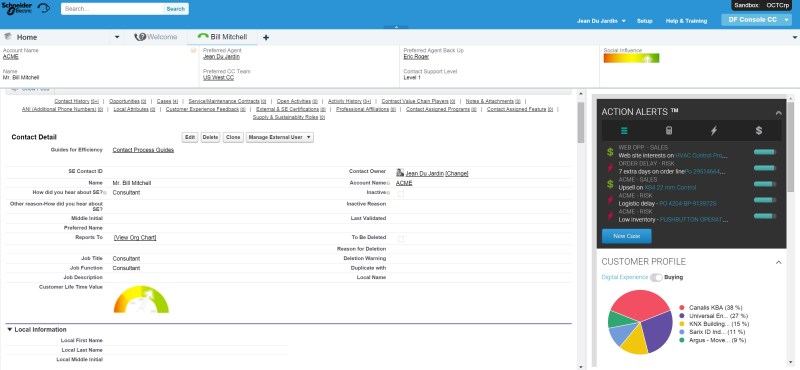Marketing software vendors are doing almost everything except become personal buddies with each of us, in order to understand what customers really want.
The latest effort is today’s launch by New York City-based CustomerMatrix of its Cognitive Intelligence Engine, following a six-month beta phase.
According to the company, the problem to be solved is found in research firm IDC’s estimation that a typical Fortune 1000 company loses about a half million bucks every day in missed sales opportunities.
CustomerMatrix’s solution is to provide better intelligence for customer relationship management (CRM) systems in customer care centers for B2Bs, primarily in manufacturing, financial services, or telco. This is intended to reduce cancellations and increase cross-selling, upselling, and customer satisfaction for existing customers.
AI Weekly
The must-read newsletter for AI and Big Data industry written by Khari Johnson, Kyle Wiggers, and Seth Colaner.
Included with VentureBeat Insider and VentureBeat VIP memberships.
The new platform “connects the dots across all the channels,” CEO Guy Mounier told me, taking “into account what people say and do.”
Or, as the company’s slogan pitches: “What if your CRM could think?”
Making a decision on marketing clouds?
See which marketing clouds are right for your organization.
Using real-time machine learning that is designed to identify new patterns with experience, the platform generates Action Alerts — recommendations for best resolving an issue, for providing the most appropriate article or white paper, or for choosing the right products to offer. Implementation is conducted with tools in the CRM or an integrated marketing automation platform.
For anyone who follows marketing tech, this may sound a lot like predictive analytics. It similarly sifts big data to predict future behavior, such as which prospects will most likely become customers or if this person’s recent purchase of a gray sofa means she will likely be interested in a black rug.
But Mounier said his platform is fundamentally different.
For one thing, it uses cognitive computing, a kind of artificial intelligence used by IBM’s Watson that is designed to understand contexts and not simply follow rules, as predictive analytics does.
“A lot of other tools are rule-based,” he said, resulting in the same recommendations again and again for similar conditions. In a predictive analytics system, he said, the buyer of the gray sofa might always get a recommendation of a black rug.
CustomerMatrix, though, uses real-time machine learning that is optimized for unstructured data, such as call center logs or social media comments. It can understand “the meaning of text” and automatically discover topics, opinions, events, and their relationships.
And, adapting cognitive analytics from the field of robotics, it can understand “a behavior sequence and what [next] action is most likely.”
An automated case solver, for instance, “reads the case, figures out which product [the customer is] talking about, and picks the solution,” he said.
Mounier told me that CustomerMatrix’s resulting recommendations accurately predict 84 percent of the time which recommendations will satisfy the customer’s issue or will lead to selling more products.
Standard predictive analytics, he said, does not come near those results. “People doing predictive analytics are getting disappointing results,” he added.
This kind of cognitive computing solution is typically custom-built for large companies by Accenture Digital or Deloitte Digital at a cost exceeding a million dollars, he said, but CustomerMatrix has “productized” it at 20 percent of that cost.
VentureBeat's mission is to be a digital town square for technical decision-makers to gain knowledge about transformative enterprise technology and transact. Learn More

